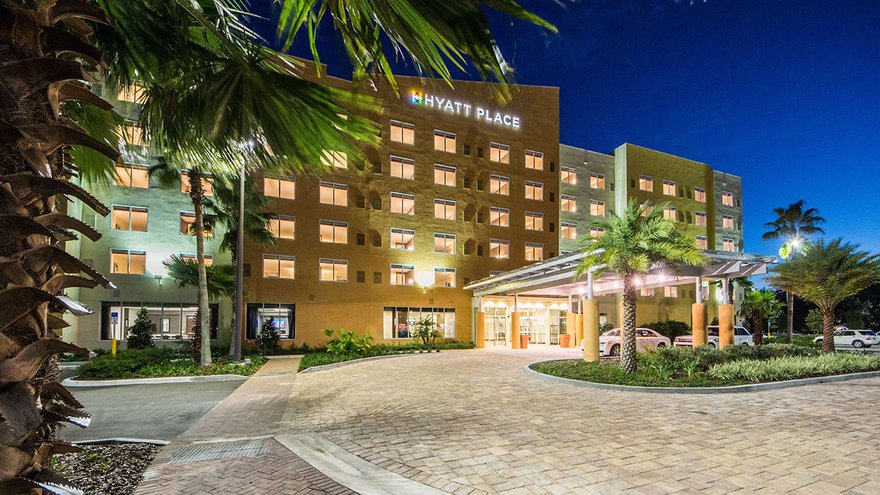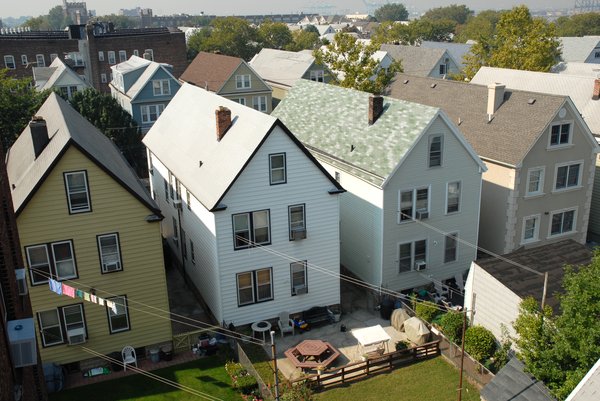Owning a single rental property is great, but what if you could get most of the advantages of real estate investing by simply choosing the best real estate stocks for your portfolio? There are a lot of advantages to owning real estate stocks over real property, especially when it comes to eliminating the hassle of hands-on management. But there are a lot of real estate stocks to choose among, too, so how can you begin to pick?

Here are some real estate stocks to watch for the long term:
| Name | Ticker | Market Cap | Description |
|---|---|---|---|
| Mid-America Apartment Communities | (NYSE:MAA) | $21.10 billion | Class A and Class B apartment REIT |
| UMH Properties | (NYSE:UMH) | $1.07 billion | Manufactured home community REIT |
| Farmland Partners | (NYSE:FPI) | $759.14 million | Farmland REIT |
| Lennar | (NYSE:LEN) | $23.5 billion | Homebuilder |
| LGI Homes | (NASDAQ:LGIH) | $2.32 billion | Homebuilder specializing in entry-level homes |
Mid-America Apartment Communities
Mid-America Apartment Communities is a real estate investment trust (REIT) that owns and operates more than 100,000 Class A and Class B apartment units in 16 states and 297 apartment communities, mostly across the Sunbelt. It has shown significant and steady growth in funds from operations during the past five years, and, according to reporting for 2021, held equity of $27.2 billion and debt of $4.56 billion.
Perhaps the most remarkable thing about Mid-America Apartment Communities, however, is its commitment to redevelopment and adding value to units it already holds rather than selling off aging ones. During 2021, the company renovated 6,360 apartments, increasing the average rental rate of each unit by 12.2%.
Not only are these practices a solid way to conserve a limited apartment supply, but they are low-cost methods to increase per-unit value without constantly buying and selling real estate, which can be a costly venture on its own. After all, the more spent, the less return REIT investors receive each year. Responsible conservatorship is also evident in the company’s debt-to-equity balance.
UMH Properties
UMH Properties is a real estate investment trust that has been in the manufactured home business since 1968 and publicly traded since 1985. It holds approximately 8,800 individual manufactured rental homes in 130 communities. The company added 288 units in the year ending June 1, 2022, and has an additional 3,400 vacant lots ready to be filled. UMH also offers manufactured homes for sale to occupants, selling 358 in the year ending June 1, 2022, and receiving rents for the lots on which the units sit (and those sold in previous years).
At the end of 2021, UMH held $1.2 billion in real estate assets, including site improvements, with $452 million in mortgage debt. Although this is a significant debt-to-asset ratio, much of it is due to ongoing investment and expansion. As real estate prices continue to rise, UMH offers both affordable site rent and affordable overall rent for single-family housing, which may remain in high demand since the COVID-19 pandemic made apartment units uncomfortable or unsafe living arrangements for many.
Farmland Partners
Unlike housing REITs that many investors are familiar with, farmland REITs hold and lease farmland for various kinds of crops and other uses. Farmland Partners holds 186,000 acres in the U.S., with more than 100 tenants and 25 crop types, giving it the ability to handle most adverse weather conditions that can result in poor crop yields.
Approximately 90% of the farms in its portfolio grow commodity products, including corn, soybeans, wheat, rice, and cotton. The remaining 10% are permanent crop farms that include tree nuts, citrus, and avocados. In addition to crop farmland, Farmland Partners leases to both solar and wind farms, unlike other farmland REITs. Its renewable energy leases include five solar farms and nine wind projects that coexist with crops.
As of May 2022, Farmland Partners reported approximately $1.2 billion in assets and about $528 million in total liabilities, with no vacancies across its entire portfolio. Insider shares top 8%, indicating that even those with their fingers on the buttons have a lot of faith in its future.
Lennar
Lennar is one of the largest builders of single-family homes in the U.S. It reported revenues of $27.1 billion in 2021 as a result of delivering almost 60,000 homes during the calendar year. Although building homes is its primary focus, Lennar also offers FHA and VA home loans to its home buyers through subsidiary Lennar Mortgage, as well as title insurance and closing services in 18 states.
Homebuilders are seeing an overall boom due to the rise in real estate prices and widespread demand for housing. Lennar had a backlog of $11.4 billion worth of homes (23,771 units) at the end of 2021, which will figure into 2022 earnings. Lennar also is looking for more ways to streamline its books, including developing a “lighter land strategy,” which aims to reduce the number of years the company holds individual pieces of land before they are fully developed and sold.
Along with clear plans to trim the cost of doing business, Lennar is technology-forward and is seeking new ways to create homes with a limited labor force. Exploration of tools such as 3D printing may allow it to build even more homes in the future despite a shrinking construction labor force.
LGI Homes
LGI Homes is a mid-sized and growing builder that focuses effort and marketing on first-time homebuyers. For the year ending March 31, 2022, the average price of a home produced and sold by LGI was $305,000. That’s a significant discount from the median existing home price of $391,000 reported by the National Association of Realtors in April 2022. Pricing alone gives LGI a distinct advantage in its market, but that’s not the whole story behind the company.
At the end of March 2022, LGI held $2.3 billion in inventory and $53.3 million in cash, with $1.171 million in liabilities. It closed 1,599 homes during the first quarter of 2022, generating $546.1 million in revenues, a 22.7% increase over the first quarter of 2021. This isn’t just a fluke due to the hot housing market, though.
From 2014 through 2021, LGI reported consistent increases in home closings, average sales prices, and net incomes. Gross margins have remained more or less the same in the mid-20% range. Management holds large stakes in the company, with 12.42% of shares staying within the operation.
Related investing topics
The bottom line
There are plenty of ways to invest in real estate besides owning physical real estate assets. For many investors, real estate stocks can make all the best parts of owning real estate much more accessible and far less expensive. Whether you’re interested in investing in apartment REITs or the builders who construct owner-occupied neighborhoods, there are lots of offerings on the table.
When evaluating real estate stocks, remember that many of the same rules apply as for any kind of stock. Look for companies that have great offerings, whether it’s leasable real estate or purchasable housing stock. Make sure they aren’t carrying a high level of debt that could become a serious liability in a downturn. The better they are at managing their money, the better off you’ll be. And, if the management team happens to own a big chunk of the company, that’s pretty solid evidence they’re invested in making their company succeed by tying their own futures to that success.

















